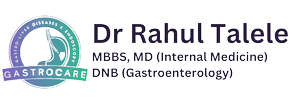Endoscopy

Endoscopy
Symptoms:
The symptoms of endoscopy may vary depending on the type of endoscopy performed and the individual’s overall health condition. However, some common symptoms that a person may experience after endoscopy include:
- Sore throat
- Abdominal discomfort
- Nausea and vomiting
- Fatigue
- Minor bleeding
It is important to follow the instructions given by the doctor after the procedure, which may include avoiding certain foods and drinks, taking medications, and scheduling a follow-up appointment. If a person experiences severe or persistent symptoms after endoscopy, they should contact their doctor immediately
Precautions:
Like any medical procedure, endoscopy carries some risks. To minimize the risks, here are some precautions that doctors and patients should take:
- Discuss any medical conditions or medications with the doctor before the procedure to make sure there are no contraindications or drug interactions.
- Follow the fasting and medication instructions given by the doctor or nurse before the procedure to ensure that the stomach is empty and the bowel is clean.
- Inform the doctor of any allergies to medications, latex, or other materials, as some endoscopes and instruments contain latex or other allergens.
- Be prepared for some discomfort during the procedure, such as gagging or cramping, but inform the doctor if the discomfort becomes severe.
- After the procedure, follow the instructions for post-procedure care, such as drinking plenty of fluids and avoiding heavy meals or strenuous activity for a period of time.
- Watch for signs of complications, such as fever, abdominal pain, or bleeding, and report them to the doctor immediately.
By following these precautions, patients can minimize the risks associated with endoscopy and ensure a safe and successful procedure.
